2019 Events Archive
| Date | Event | Speaker(s) |
|---|---|---|
| January 31 | Il Bel Canto: Scenes and Arias from Great Italian Operas | The Washington National Opera, Domingo-Cafritz Young Artist Program, hosted by Robert Ainsley |
| April 26 | Liberal Education and Leadership: a Conversation | Emma Marcegaglia & Dr. Christopher Celenza |
| October 3 | La musica dei cieli: The life and music of Cardinal Domenico Bartolucci | Maria Tomassi, Joshua Conyers, Robert Ainsley, & Frederick A. Binkholder, The Chamber Singers of Georgetown University |
| November 5 | Artificial Intelligence | Dr. Rita Cucchiara & Dr. Jason Matheny |
| November 19 | A Healthy Life: Prevention & Control | Dr. Maria Benedetta Donati & Dr. Frank Sacks |
A Healthy Life: Prevention and Control
Tuesday, November 19, 2019 at 6:00 p.m.
Intercultural Center Auditorium
Georgetown University
3700 O Street NW, Washington DC 20057
Speakers
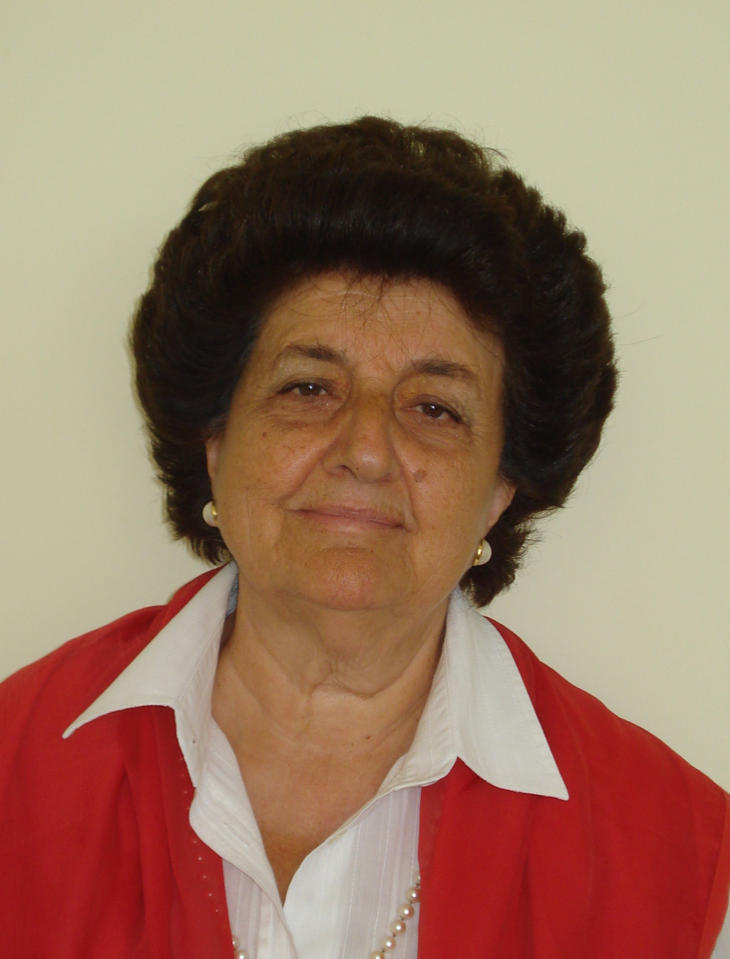
Dr. Maria Benedetta Donati, M.D. Ph.D
Head of the Laboratory of Translation Medicine and of the Neuromed Biobanking Center, Department of Epidemiology and Prevention, IRCCS Neuromed, Pozzilli, Isernia
MD Degree with the Highest Distinction (1968, Catholic University, Rome) specialization in Clinical and Laboratory Hematology (1971 same University), Ph.D. in Hemostasis Physiopathology (1973, University of Leuven, Belgium), Honoris Causa MD from two Universities (Byalistok, Poland and Debrecen, Hungary), Special Mention “For Women in Science” (UNESCO-L’Oréal, Paris 2002), “100 Women Scientists “ (Fondazione Bracco, Milano 2016); “Top Italian Women Scientists”, ONDA, Milano 2016.
She has devoted her scientific research to the investigation of thrombosis, the process which leads to the obstruction of blood vessels and may cause major disorders such as myocardial infarction and stroke; in particular, during the first part of her scientific activity at Mario Negri Institute in Milan and subsequently at Mario Negri Sud in the Abruzzo Region, she has pioneered studies on thrombosis and cancer and on the treatment of some tumor types with anticoagulant drugs; in 1993 she launched the First International Group devoted to “Hemostasis and Malignancy” (within the International Society for Hemostasis and Thrombosis). More recently she studied the interaction between genetic and environmental factors as determinants of cardiovascular risk, and discovered, together with Licia Iacoviello, the presence of a genetic variant of a clotting factor that would protect 20% of the Italian population from myocardial infarction.
In 2005 she was a founder and is a Member of the Steering Committee of the Moli-sani study, an ongoing epidemiological prospective project on nearly 25,000 adults living in the Molise Region. The aim is to analyze risk or protective factors of chronic degenerative diseases (CV disease, cancer, neurodegenerative disease) and to substantiate the beneficial effects of the Mediterranean Diet on health and quality of life.
More than 64,000 citations, H. Index: 93. She is included in the top 4% of the 1,649 most cited Italian biomedical investigators.
Five selected publications
- Cultured human endothelial cells generate tissue factor in response to endotoxin.
Colucci M, Balconi G, Lorenzet R, Pietra A, Locati D, Donati MB, Semeraro N.
J Clin Invest. 1983 Jun;71(6):1893-6.PMID:6345590
- Polymorphisms in the coagulation factor VII gene and the risk of myocardial infarction.
IacovielloL1, Di Castelnuovo A, De Knijff P, D’Orazio A, Amore C, Arboretti R, Kluft C, Donati MB.
N Engl J Med. 1998 Jan 8;338(2):79-85.doi: 10.1056/NEJM199801083380202
- Thrombotic complications in childhood acute lymphoblastic leukemia: a meta-analysis of 17 prospective studies comprising 1752 pediatric patients.
Caruso V, Iacoviello L, Di Castelnuovo A, Storti S, Mariani G, de Gaetano G, Donati MB.
Blood. 2006 Oct 1;108(7):2216-22. Epub 2006 Jun 27.PMID:16804111
- Circulating Tissue Factor Levels and Risk of Stroke: Findings from the EPICOR Study.
Iacoviello L1, Di Castelnuovo A2, de Curtis A2, Agnoli C2, Frasca G2, Mattiello A2, Matullo G2, Ricceri F2, Sacerdote C2, Grioni S2, Tumino R2, Napoleone E2, Lorenzet R2, de Gaetano G2, Panico S2, Donati MB2.
Stroke. 2015 Jun;46(6):1501-7. doi:10.1161/STROKEAHA.115.008678.
- Interaction between Mediterranean diet and statins on mortality risk in patients with cardiovascular disease: Findings from the Moli-sani Study.
Bonaccio M1, Di Castelnuovo A2, Costanzo S2, Persichillo M2, De Curtis A2, Cerletti C2, Donati MB2, de Gaetano G2, Iacoviello L3; Moli-sani Study Investigators.
Int J Cardiol. 2019 Feb 1;276:248-254.
Abstract
Mediterranean Diet and Healthy Life: Messages from the Moli-sani Study
With its 25,000 citizens recruited, the Moli-sani Study is one of the largest population studies ever carried out in Europe. Established in 2005-2010 to investigate genetic and environmental factors contributing to the onset of major chronic diseases, this study, conducted in a small region of Southern Italy, can count on a detailed map of the eating habits of the participants. One of the most explored fields of research so far has been that of the Mediterranean Diet, to which the study has enormously contributed during the last decade with numerous investigations. Based on results from the Moli-sani Study, it has been possible to confirm the health advantages associated with adherence to the Mediterranean Diet not only for the general population but also for subjects at high risk, as individuals with type 2 diabetes, cardiovascular patients, or elderly. Other healthy lifestyles, such as control of body weight, physical exercise, and no smoking, add to the Mediterranean Diet to further prolong survival. The Moli-sani Study has also opened an unprecedented field of investigation that focuses on potential diet inequalities linked to the quality of Mediterranean products, beyond traditional assessments based on measurements of the amount and frequency of food consumed.
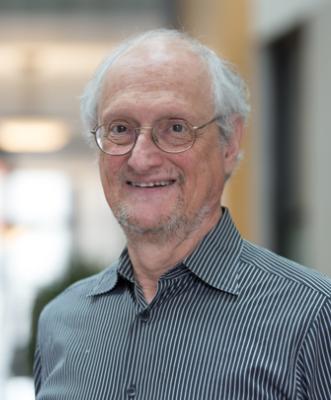
Dr. Frank Sacks
Professor of Cardiovascular Disease Prevention in the Nutrition Department of Harvard T.H. Chan School of Public Health
Professor of Medicine at Harvard Medical School
Dr. Sacks led the panel that designed the DASH Study, which crafted a healthful eating pattern and demonstrated that it lowered blood pressure more effectively than any previous dietary treatment. Subsequently, Dr. Sacks led the DASH-Sodium study, which determined the dose-response effect of dietary sodium on BP. These multi-center National Heart Lung and Blood Institute trials found major beneficial additive effects of low salt and a dietary pattern rich in fruits and vegetables on blood pressure. He also led the landmark PoundsLost trial which showed the effectiveness of several healthy diets with differing fat, carbohydrate, and protein content on long-term weight loss. Currently, he is studying the role of diet to prevent cognitive decline in aging. His laboratory studies human HDL metabolism and sub-speciation.
Dr. Sacks received the 2011 Research Achievement Award from the American Heart Association for lifetime research accomplishment. Dr. Sacks has published 220 original research articles and 88 reviews, editorials, and letters.
Abstract
Healthful Dietary Patterns to Prevent and Alleviate Chronic Disease
Healthful dietary patterns such as Mediterranean, vegetarian, and DASH diets lower the risk of cardiovascular disease and other chronic diseases. A DASH-type diet with low sodium content can virtually prevent the incidence of hypertension. Finally, observational studies suggest that these dietary patterns prevent cognitive decline with aging, an association that is currently being tested in a randomized trial, called MIND.
Clinical trials, prospective observational studies, and mechanistic studies link certain dietary fats and carbohydrates to cardiovascular disease. The evidence is presented in detail in an American Heart Association Presidential Advisory on Dietary Fats and CVD (Sacks FM et al, Circulation 2017;136:e1-23). In summary, randomized trials that replaced saturated fat with polyunsaturated fat, mainly linoleic acid, lowered the risk of cardiovascular disease. In contrast, a meta-analysis of six trials that replaced saturated fat or total fat with carbohydrates did not show a significant reduction in CVD. This indicates that any evaluation of a macronutrient or a portion of food needs to consider the replacement.
Moderator & Discussion Leader
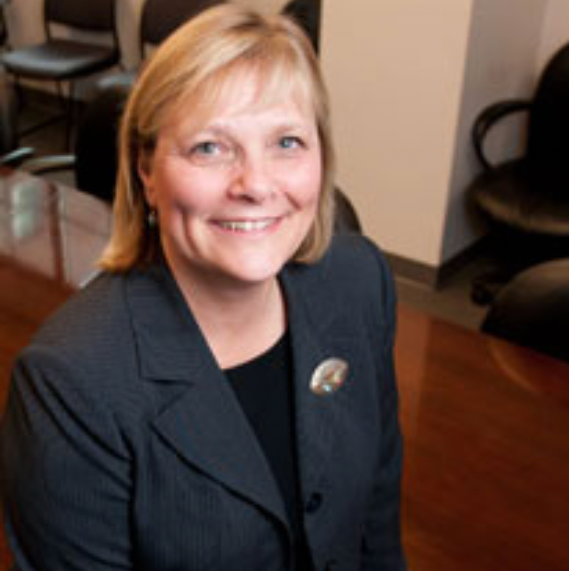
Laura Anderko, Ph.D., RN
The Robert and Kathleen Scanlon Chair in Values Based Health Care Professor & Director of the Mid-Atlantic Center for Children’s Health and the Environment at Georgetown University School of Nursing & Health Studies
Professor Anderko holds the Robert and Kathleen Scanlon Endowed Chair in Values Based Health Care and is PI for the Mid-Atlantic Center for Children’s Health and the Environment, a Pediatric Environmental Health Specialty Unit Serving Region3. She is a scholar and educator in the fields of public health and environmental health, with a focus on health equity.
Artificial Intelligence
Tuesday, November 5, 2019 at 6:00 p.m.
Intercultural Center Auditorium, Georgetown University
3700 O Street NW, Washington, DC 20057
The Georgetown University Italian Research Institute of Georgetown College, in collaboration with the Embassy of Italy, the Italian Cultural Institute, and the Georgetown University Center for Security and Emerging Technology, is pleased to sponsor a seminar and discussion on a timely topic related to the latest research on AI visual intelligence, applications for human-centered AI, and security.
Distinguished Speakers
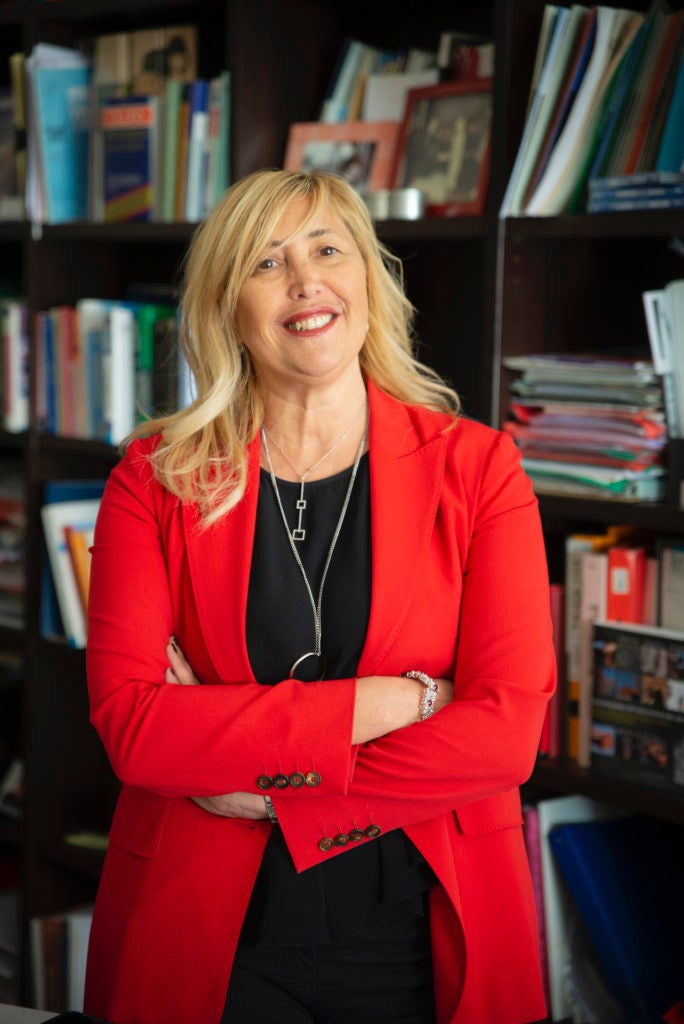
Dr. Rita Cucchiara
Professor of Engineering
University of Modena and Reggio Emilia
Director, CINI National Laboratory of Artificial Intelligence and Intelligent Systems (AIIS)
Rita Cucchiara (Electronic Engineering Degree, 1989 – Ph.D. in Computer Engineering at the University of Bologna, 1993) is a Full Professor at the University of Modena and Reggio Emilia in the Department of Engineering “Enzo Ferrari”. She heads the AImageLab Research Laboratory, gathering more than 30 researchers, working in different research fields of Artificial Intelligence such as Computer Vision, Pattern Recognition, Deep Learning and Multimedia, applied to surveillance, automotive and robot-human interaction, cultural heritage, and medicine. She heads the co-funded RedVision Lab with UNIMORE and Ferrari and coordinates several research projects with industries.
Currently, she is the Director of the CINI National Laboratory of Artificial Intelligence and Intelligent Systems (AIIS), with the endorsement of the Italian Presidency of Minister Council. She worked in a group of experts for the Italian AI Strategy with the Minister of Economic Development. She is a member of the Board of Directors of the Italian Institute of Technology.
She was President of the Italian Association CVPL, Italian Chapter of IAPR from 2016 to 2018; she is IAPR Fellow since 2006. In 2018 she was awarded the “Maria Petrou” for “outstanding research in Pattern Recognition and Video Surveillance” and included in the list of 25 women in the world for influencing Robotics by Robothub. In 2019 she was named a fellow of ELLIS (European Labs for Learning and Intelligent Systems). Having published more than 400 papers, she has been a keynote speaker in many conferences and is very active in scientific dissemination, such as Program Chair of ICCV2017, Area Chair of NeurIPS 2018, 2019, General Chair of the next ICPR2020 in Milano, ACMMM2020 in Seattle and ECCV2022 in Tel Aviv.
Abstract
Visual Intelligence: Research and Applications for Human-centered AI
Over the past decade, the joined research in Machine Learning and Computer Vision achieved impressive results worldwide, as the most successful area of Artificial Intelligence. The capability of understanding images and video content reached new solutions both for autonomous intelligent systems and for augmenting the intelligence of human activities.
The talk will focus on some aspects of what is called Visual Intelligence for AI-based systems, which mimics the typical human ability to understand the world, predict events, and imagine possibilities through visual perception. In particular, new research results for salient object recognition, attentional analysis, and details detection in images will be presented, with reference to some projects carried out at AImagelab, in Italy, together with national and international companies. This visual intelligence capability is directly applicable in different contexts: the prediction of car-driver attention, the robot exploration of unknown environments, the detection of humans with their actions, the automatic description of image content by language as well as a novel way of knowledge extraction from cultural heritage data. Imagination, creativity, and curiosity-driven behavior can be transferred to machines, now, and this will be potentially the core of future generations of human-centered AI.
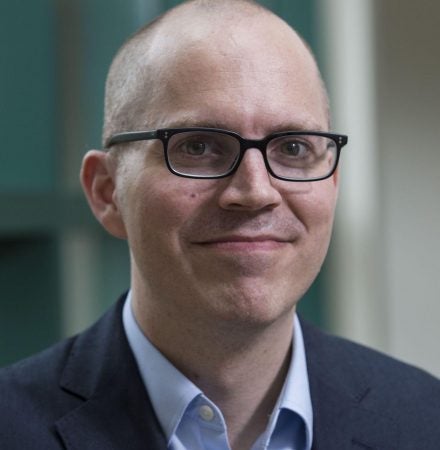
Dr. Jason Matheny
Director
Center for Security & Emerging Technology
Georgetown University
Jason Matheny is the founding director of Georgetown’s Center for Security and Emerging Technology. Previously he was Assistant Director of National Intelligence, and Director of IARPA, responsible for the development of breakthrough technologies for the U.S. intelligence community. Before IARPA, he worked at Oxford University, the World Bank, the Applied Physics Laboratory, the Center for Biosecurity, and Princeton University, and was the co-founder of two biotechnology companies. He is a member of the National Security Commission on Artificial Intelligence and the National Academies’ Intelligence Community Studies Board; is a recipient of the Intelligence Community’s Award for Individual Achievement in Science and Technology, the National Intelligence Superior Service Medal, and the Presidential Early Career Award for Scientists and Engineers; and was named one of Foreign Policy’s “Top 50 Global Thinkers.” He has served on various White House committees related to artificial intelligence, biosecurity, high-performance computing, and quantum information science. He co-led the National AI R&D Strategic Plan released by the White House in 2016 and was a member of the White House Select Committee on AI, created in 2018. He holds a Ph.D. in applied economics from Johns Hopkins University, an MPH from Johns Hopkins University, an MBA from Duke University, and a B.A. from the University of Chicago.
Abstract
Towards AI Security
Today’s AI systems are vulnerable to a range of attacks, including spoofing and data poisoning attacks that require little technical sophistication. There are few commercial incentives to address these vulnerabilities, and in some cases, their societal costs could be profound, comparable to the current costs of cybersecurity. This talk will describe AI vulnerabilities and the steps that government, industry, and academia can take to make future AI systems more secure.
Discussion Leader & Moderator
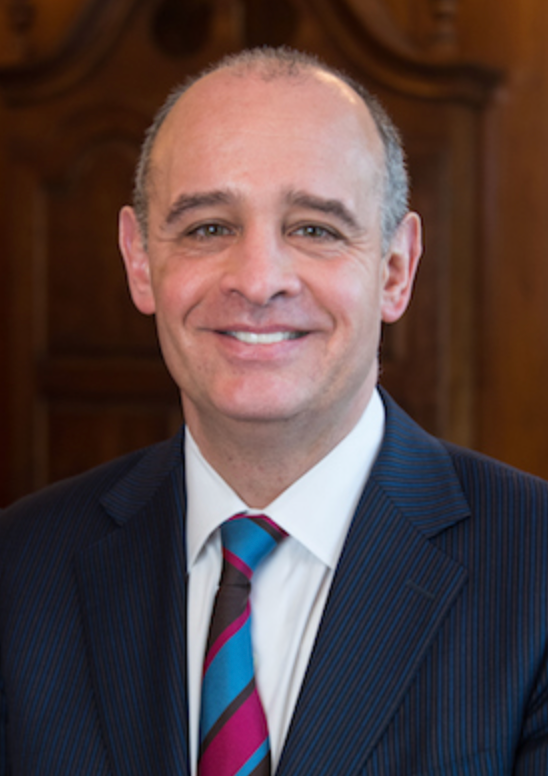
Christopher S. Celenza, Ph.D., Dr.phil.
Dean of Georgetown College
Professor, History and Classics
Georgetown University
Christopher S. Celenza is Dean of Georgetown College at Georgetown University, where he is also a professor of History and Classics. Previously, he served as Vice Provost for Faculty Affairs at Johns Hopkins University, where he held the Charles Homer Haskins Professorship. At Johns Hopkins, he also served a Vice Dean for Humanities and Social Sciences. He served as the 21st Director of the American Academy in Rome from 2010-14.
Celenza holds two doctoral degrees, a Ph.D. in History (Duke University, 1995) and a DrPhil in Classics and Neo-Latin Literature (University of Hamburg, 2001). He is the author or editor of ten books and over forty scholarly articles in the fields of Italian Renaissance history, post-classical Latin literature and philosophy, and the history of classical scholarship.
An Italian translation of his book, The Lost Italian Renaissance, appeared with the publisher Carocci in 2014. His most recent books are The Intellectual World of the Italian Renaissance: Language, Philosophy, and the Search for Meaning (Cambridge and New York: Cambridge University Press, 2018); Petrarch: Everywhere a Wanderer (London: Reaktion, 2017); and Machiavelli: A Portrait(Cambridge, Mass.: Harvard University Press, 2015).
He has held Fellowships from the Guggenheim Foundation, the ACLS, Villa I Tatti, the American Academy in Rome, and the Fulbright Foundation
La musica dei cieli: The life and music of Cardinal Domenico Bartolucci

Thursday, October 3, 2019 at 6:00 p.m.
Gonda Theatre, Georgetown University
3700 O Street NW, Washington, DC 20057
The Italian Research Institute, in collaboration with Prof. Anthony Del Donna, Program Director & Professor of Musicology, Department of Performing Arts, Georgetown University, the Cardinal Domenico Bartolucci Foundation, and the Domingo-Cafritz Young Artist Program, is pleased to dedicate an event to Cardinal Domenico Bartolucci, (1917-20130 an incomparable artist, composer, and Director of the Sistine Chapel Choir.
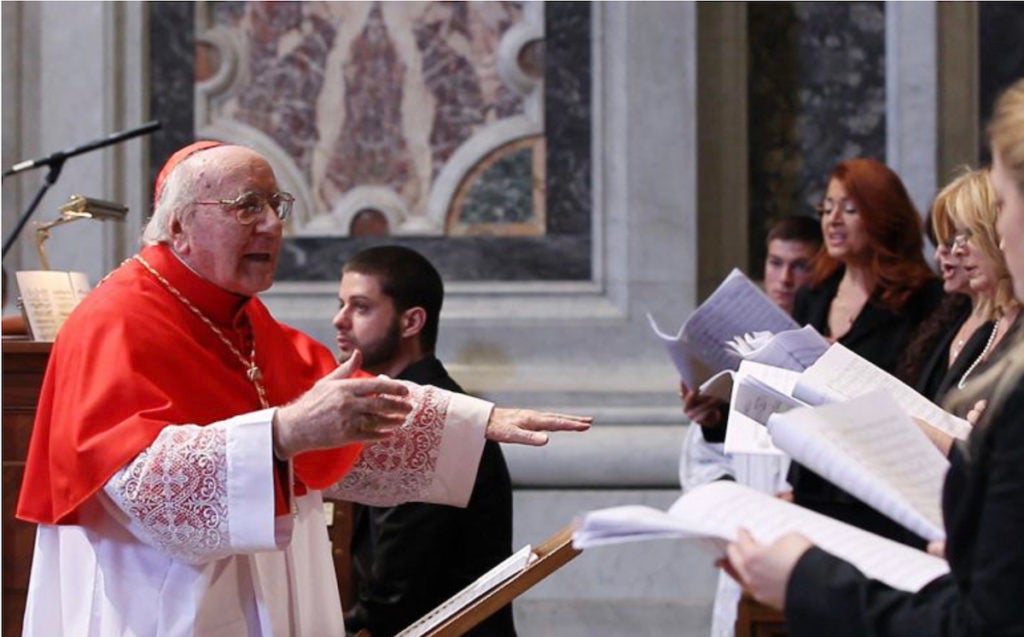
Cardinal Bartolucci began composing at the age of 14. He studied in Rome, was the Maestro in the Florence Cathedral, and in 1956 Pope Pius XII appointed him as the Perpetual Maestro and Director of the Sistine Chapel Choir. Maestro Bartolucci also taught at the Santa Cecilia Conservatory and at the Pontifical Institute of Sacred Music.
He was an extraordinary composer of chamber music, motets, organ music, Masses, and symphonies published in over forty volumes. Maestro Bartolucci also composed Brunellesco, a lyric opera, inspired by his admiration for Brunelleschi, the famous architect who won the competition for the construction of the dome of Santa Maria del Fiore in Florence. The opera will be performed in Florence and in theaters around the world. Cardinal Bartolucci’s masterful work as director and composer has been recognized and admired by all the Supreme Pontiffs from Pope Pius XII to Pope Francis.
It is an honor for the Italian Research Institute to present arias from the Brunellesco as well as Cardinal Bartolucci’s selected musical pieces.
A singer from Italy, sponsored by the Bartolucci Foundation will join Mr. Joshua Conyers, a baritone from the Domingo-Cafritz Young Artists Program. Mr. Robert Ainsley, the Director of the Domingo-Cafritz Young Artist Program, has graciously offered to be the pianist. The event offers a unique experience to listen and enjoy the music of a great composer.
Featuring
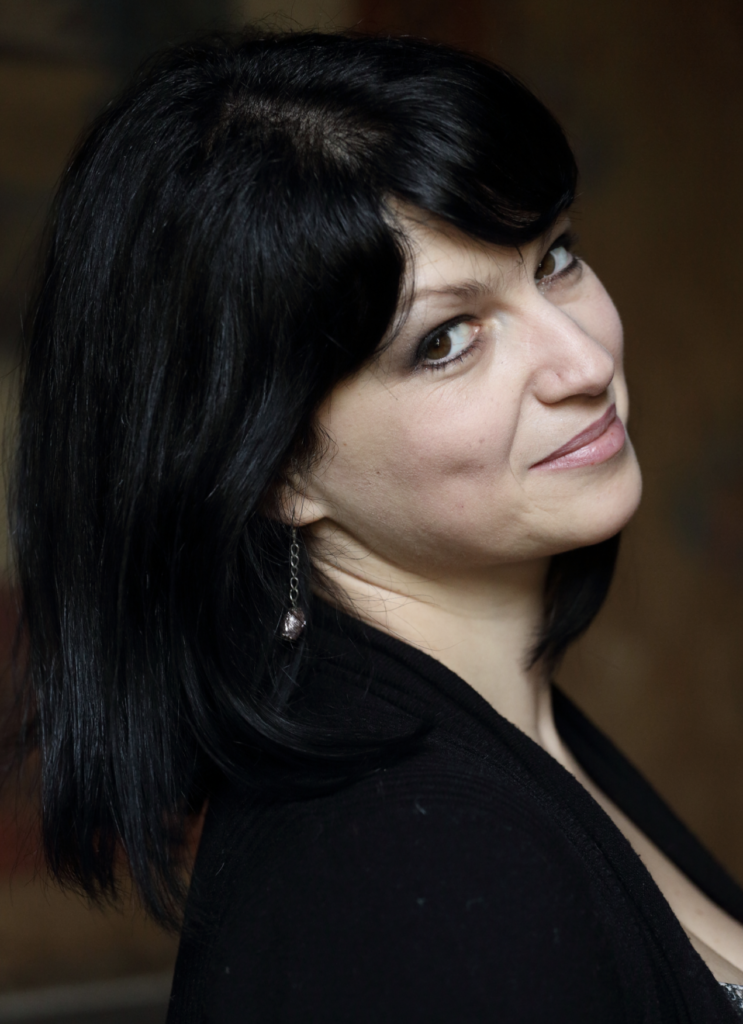
Maria Tomassi
Soprano
Maria Tomassi studied with Stefania Magnifico and graduated from the Conservatory “Alfredo Casella” in L’Aquila (Italy). Later she studied at the National Academy of Santa Cecilia in Rome with Renata Scotto, Cesare Scarton, and Silvana Bazzoni Bartoli, simultaneously focusing on the Lieder repertoire with Ulf Bastlein and Stacey Bartsch (the University of Music and Performing Arts Graz) and on acting and mime with Michele Monetta (Silvio d’Amico National Academy of Dramatic Arts).
Repertoire
Opera
Serpina in “La Serva Padrona” by G. B. Pergolesi; “Il combattimento di Tancredi e Clorinda” by C. Monteverdi; Donna Anna and Donna Elvira in “Don Giovanni” by W. A. Mozart; Mimì in “La Bohème” by G. Puccini (Teatro del Giglio in Lucca); “The Diary of Nijinsky” by Detlev Glanert (Italian premiere – Cantiere Internazionale d’Arte – 2008); Micaela in “Carmen” by G. Bizet; Fiordiligi in “Così Fan Tutte” and Contessa D’Almaviva in “Le nozze di Figaro” (Seoul Art Center) by W. A. Mozart; Odabella in “Attila” by G. Verdi; Violetta in “La Traviata” by G. Verdi; Tosca, Manon Lescaut (Seoul Art Center) and Suor Angelica by G. Puccini.
Oratorio, Sacred and Chamber Music
Stabat Mater by L. Boccherini; Exultate Jubilate by W.A. Mozart; Stabat Mater by G.B. Pergolesi (opening of the “K Festival” at the Auditorium Parco della Musica in Rome – 2008); Phaedra by B. Britten; La Natività by D. Bartolucci (Florence Cathedral – 2014).
Awards
XXXVI “Toti dal Monte” International Competition; IV Monte Carlo Voice Masters; III “Luciano Neroni” International Opera Singing Competition; Capri Opera Competition; “Ibla Grand Prize” International Competition; “Trofeo La Fenice” International Opera Competition”; “Umberto Giordano” International Opera Competition; “Rolando Nicolosi” International Competition; XII Altamura Caruso International Voice Competition of New York; “Marcella Pobbe” International Opera Competition; Yang Soo Hwa International Competition.
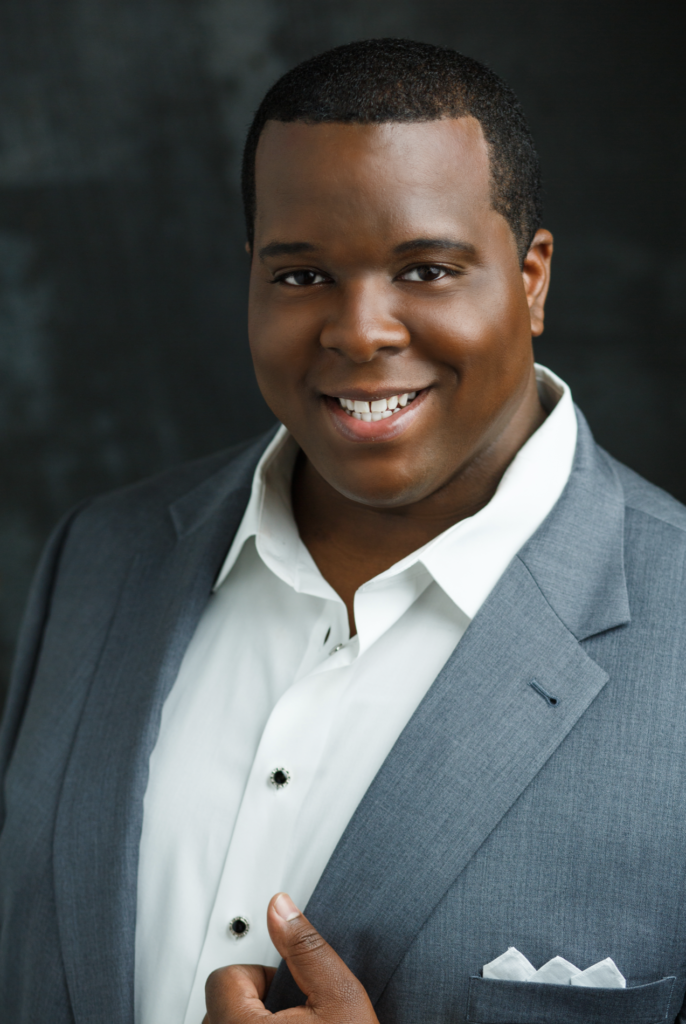
Joshua Conyers
Baritone
Domingo-Cafritz Young Artist Program
Baritone Joshua Conyers has been hailed by Opera News with “a deliciously honeyed baritone that would seduce anyone” and The New York Times as having “a sonorous baritone” that “wheedled and seduced.” Mr. Conyers, a native of Bronx, NY, is quickly being championed for his captivating performances as he continues to be recognized as one the promising young dramatic voices of today. Equally active in contemporary opera, Mr. Conyers covered the roles of Mr. Umeya in the American premiere of Huang Ruo’s Dr. Sun Yat-Sen in Mandarin and Walt Whitman in the world premiere of Theodore Morrison’s Oscar, both with the Santa Fe Opera.
Mr. Conyers is a returning member of the Washington National Opera’s Domingo-Cafritz Young Artist Program, a program of the John F. Kennedy Center for the Performing Arts for the 2019-2020 season. Joshua Conyers will sing the roles of First Priest in The Magic Flute, John Sorel in The Consul, as well as Jim and Jake (cover) in Porgy and Bess. During the 2018–2019 season, he performed the roles of Giorgio Germont in La Traviata, British Major in Silent Night, Donkey in The Lion, the Unicorn, and Me, Jason in the world premiere of Matt Boehler’s 75 Miles for WNO’s American Opera Initiative, and Zaretsky in Eugene Onegin. Joshua performed Le Roi Marc in Frank Martin’s Le Vin Herbé, a collaboration with Wolf Trap Opera and Washington Concert Opera. In the summer of 2019, Mr. Conyers will be returning as a Filene Young Artist at Wolf Trap Opera performing Porgy in Gershwin’s Porgy and Bess: A Concert of Songs and Ramiro in Maurice Ravel’s L’heure espagnole with the National Orchestral Institute. Also, Mr. Conyers will be performing Musiklehrer in Richard Strauss’ Ariadne auf Naxos. For the 2017 and 2018 seasons, Mr. Conyers fulfilled his residency as a Benenson Young Artist Program at Palm Beach Opera performing Yamadori in Madama Butterfly, Marullo in Rigoletto, Sciarrone in Tosca, Captain in Candide, and covering the Conte Almaviva in Le nozze di Figaro. Mr. Conyers joined the Glimmerglass Festival in the summer of 2017 covering the roles of Porgy in Porgy and Bess and Eustachio in Donizetti’s rarely performed L’assedio di Calais.
As a concert artist, Mr. Conyers made his Carnegie Hall Debut in 2018 as the Baritone Soloist performing Mozart’s Regina Cœli, K. 276, Vaughn Williams’ Serenade to Music, Beethoven’s Choral Fantasy and Mark Hayes’ Te Deum under the baton of distinguished composer and arranger Mark Hayes with MidAmerica Productions. Also, Joshua made his debut at The John F. Kennedy Center for the Performing Arts in 2018 as the Baritone Soloist performing Maurice Duruflé Requiem with Manhattan Concert Productions under the baton of conductor Anton Armstrong. In 2019, Mr. Conyers was a Soloist with the National Symphony Orchestra performing with world-renowned Maestro Gianandrea Noseda and singer-songwriter Ben Folds. Also, he was a Guest Artist at Opera Wilmington/UNC Wilmington annual Opera Symposium, in celebration of Caterina Jarboro, in conjunction with Black History Month as a Recitalist and presenting a Masterclass. Mr. Conyers opened the 2017-18 season in a gala performance with the New Jersey Symphony Orchestra. Additional concert and oratorio credits include Bach’s St. Matthew Passion, Handel’s Messiah, Brahms’ Deutsches Requiem, Gabriel Fauré Requiem in D minor, Vaughan Williams’ Dona nobis pacem, and Carl Orff’s Carmina Burana.
Mr. Conyers has fulfilled young artist residencies with Palm Beach Opera, Santa Fe Opera, Wolf Trap Opera, Des Moines Metro Opera, Utah Festival Opera, and Musical Theater, and the Martina Arroyo Foundation’s Prelude to Performance program. His numerous vocal competition and award credits include Metropolitan Opera National Council District Winner (2010, 2011 & 2015), Metropolitan Opera National Council Regional Encouragement Award Winner, Catherine Filene Shouse Career Grant Award Winner, Annapolis Opera Top Prize Winner, Career Bridges Grant Award Winner, S. Livingston Mather Scholar Competition Top Prize Winner, the Charlotte Opera Guild Competition Top Prize Winner, and the Heafner/Williams Vocal Competition Top Prize Winner.
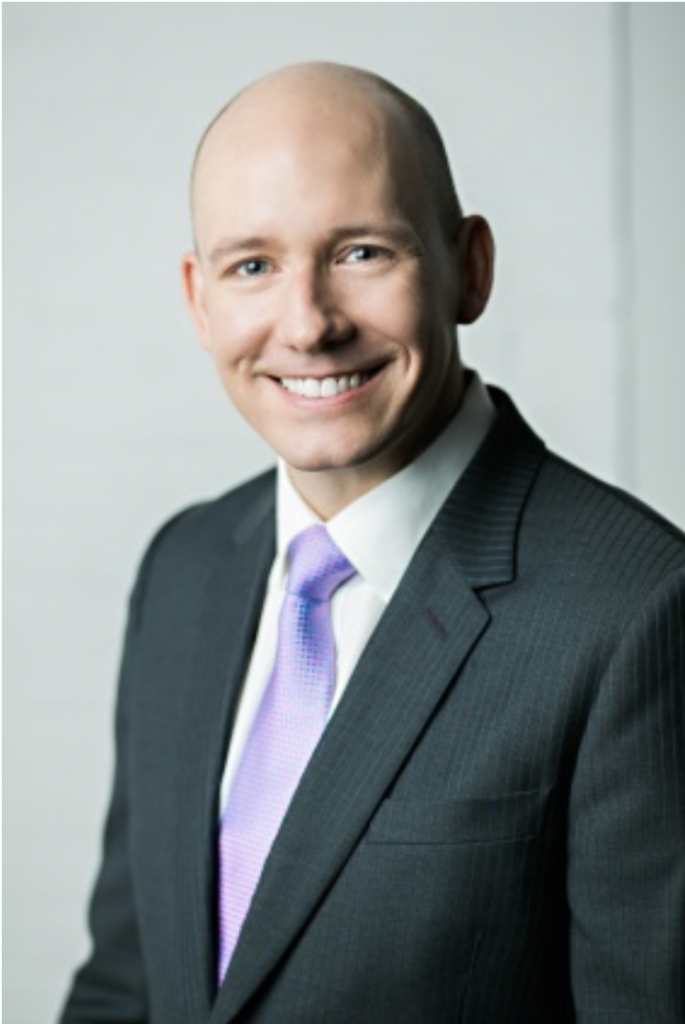
Robert Ainsley
Director and Pianist
Domingo-Cafritz Young Artist Program
Active as an opera fanatic and factotum since 2001, Rob Ainsley has explored every facet of the art form across the country and lives to pass on his enthusiasm to others. He is an alumnus of the University of Cambridge, Mannes College of Music, and the Lindemann Young Artist Development Program at the Metropolitan Opera. Since then, he has been Co-founder and Principal Conductor of the Greenwich Music Festival, a guest Chorus Master at the English National Opera, Associate Music Director at Portland Opera, Head of Music Staff, and Chorus Master at the Minnesota Opera and Opera Theatre of Saint Louis, and a faculty member at Westminster Choir College’s CoOPERAtive Program.
He is now the Director of the Washington National Opera’s Domingo-Cafritz Young Artist Program and the American Opera Initiative, seeking out and grooming the finest young American singers, composers, and librettists for international careers. His artists have performed on the world’s leading stages, won the Metropolitan Opera National Council auditions, been finalists in Operalia, and performed with him at the 2018 White House State Dinner for the President of France. He has conducted his own realizations of seventeenth-century operas, collaborated on a string of world premieres, raved about art songs in recital series of his own creation, and lectured on everything from Adams to Zemlinsky. Through it all, he has inspired hundreds of young artists and thousands of audience members to share his passion and prides himself on the friendships he has formed along the way.
The Chamber Singers of Georgetown University
Soprano
Irene Chun
Alicia Zeng
Isabella Turilli
Alto
Anna Pack
Danielle Rallis
Brooke Tanner
Tenor
Isaac Kim
William Hammond
Kevin Jackson
Pace Schwarz
Bass
Dalton Fowler
Brennan George
Robert Sassan
Brennan Young
Lead by:
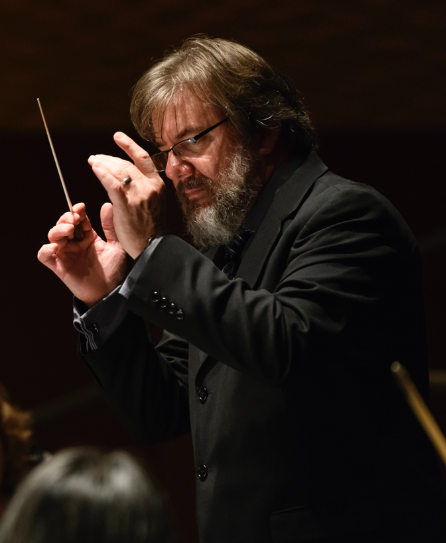
Frederick A. Binkholder
Professor of the Practice
Director of Choral Studies
Department of Performing Arts
Georgetown University
Frederick Binkholder is beginning his second decade of teaching at Georgetown University. He serves as a Professor of Practice for the Department of Performing Arts where he is the Director of Choral Studies and private voice instructor. The Concert Choir under his direction recently presented the world premiere of the 1964 Cantata Simon Bore the Cross by Margaret Bonds at the Kennedy Center. In the spring of 2020, the Chamber Singers will be returning to perform at the International Music Festival of Baroque and Renaissance Music in Santa Cruz, Bolivia. Frederick is also the Artistic Director and Conductor of the Capitol Hill Chorale. Through his work with the Chorale, he was presented the Alice Parker ASCAP award for Adventurous Programming of Contemporary Music by Chorus America in June of 2018 at their National Convention. His areas of study and research include the polyphony of the early church, baroque choral music of the Jesuit Bolivian reductions, Georgian Orthodox sacred chant, Sacred Harp hymnody and the compositions of American composers Margaret Bonds and Kevin Seigfreid.
Moderator
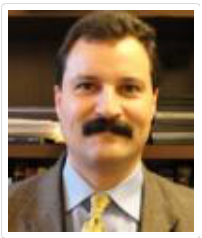
Anthony DelDonna
Professor of Musicology
Director of the Music Program
Georgetown University
Anthony R. DelDonna, Ph.D. is a Professor of Musicology and Director of the Music Program at Georgetown University. His research focuses on early modern Italy, in particular the dramatic stage (opera, oratorio, cantata), instrumental music, archival studies, performance practice, and ballet. Prof. DelDonna’s research has been published in peer-reviewed journals such as The Journal of Musicology, Acta Musicologica, Quaderni d’Italianistica, Eighteenth-Century Studies, Early Music, Eighteenth-Century Music, Recercare, Studi musical, and Civiltà musicale as well as numerous essays in scholarly volumes dedicated to the eighteenth century. DelDonna is the author of the monograph Opera, Theatrical Culture and Society in Late Eighteenth-Century Naplespublished by Ashgate Press (2012); co-editor of The Cambridge Companion to Eighteenth-Century Opera(Cambridge: Cambridge University Press, 2009); co-editor of Music as Cultural Mission: Explorations of Jesuit Practices in Italy and North America(St. Joseph University Press, 2014; with Anna Harwell Celenza) and editor for Genre and Music in the 18th century(Ann Arbor: Steglein Press, 2008). His critical edition of the oratorio Trionfo per l’Assunzione della Santissima Vergineis published by Fondazione Arcadia (LIM, 2015). Prof. DelDonna’s forthcoming publications include the critical edition of the opera, Il zelo animato ovvero Il Gran Profeta Elia (1733) by Francesco Mancini(Società editrice di musicologia) and the monograph Instrumental Music in Late Eighteenth-Century Naples: Politics, Patronage and Artistic Culture (Cambridge University Press, Forthcoming, 2020).
Liberal Education and Leadership: a Conversation
Friday, April 26th at 5:30 p.m.
Lohrfink Auditorium
Rafik B. Hariri Building
Georgetown University
3700 O Street NW, Washington, DC 20057
Speakers
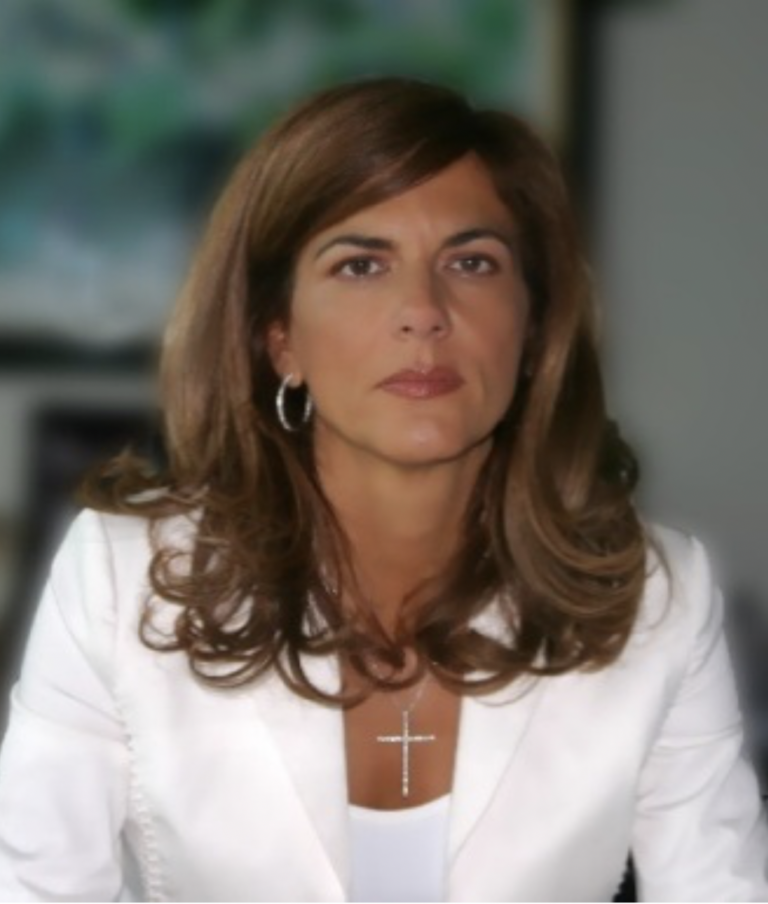
Emma Marcegaglia
Chairman & C.E.O. of Marcegaglia Holding S.p.A.
Vice Chairman & CEO of Marcegaglia Steel, S.p.A.
Chairman of Eni, S.p.A.
President Luiss University in Rome
Emma Marcegaglia is Chairman and Chief Executive Officer of Marcegaglia Holding S.p.A., and Vice Chairman and Chief Executive Officer of Marcegaglia Steel S.p.A. and its subsidiaries companies operating in the processing of steel. (Marcegaglia Carbon Steel S.p.A, Marcegaglia Specialties S.p.A, Marcegaglia Plates S.p.A., Marcegaglia Ravenna S.p.A, Marcegaglia Gazoldo Inox S.p.A)
She is also Chairman and Chief Executive Officer of Marcegaglia Investments Srl, the holding company of diversified activities of the group. (from July 1998 to June 2015 CEO of Marcegaglia S.p.A.)
- Chairman of Eni since May 2014.
- Chairman of Fondazione Eni Enrico Mattei (FEEM) since November 2014.
- President of Confindustria from May 2008 until May 2012.
- President of Luiss Guido Carli University since July 2010.
Furthermore, she sits on the Board of Directors of the following companies: Bracco S.p.A. (since May 2005) and Gabetti Property Solutions S.p.A. (since April 2005). She is a Member of the European Commission High Level Industrial Roundtable “Industry 2030” since February 2018. In the past, she has held the following offices: President of Businesseurope from July 2013 to July 2018; Member of the Board of Italcementi S.p.A; Chairman of Fondazione Aretè Onlus; Member of the Management Board of Banco Popolare; Member of the Board of Directors of FinecoBank S.p.A and Italcementi Spa.; Confindustria Vice President for infrastructure, energy, transport, and the environment from May 2004 until May 2008; Italian Representative in the High Level Group for energy, competitiveness, and environment created by the European Commission; Vice President of Confindustria for Europe from 2000 until 2002; National President of Confindustria Young Entrepreneurs from 1996 till 2000, President of YES (European Confederation of the Young Entrepreneurs) from 1997 till 2000; National Vice President of Confindustria Young Entrepreneurs from 1994 till 1996.
Born in Mantua in 1965, Emma Marcegaglia holds a Degree in Business Administration, with first-class honors, at the Bocconi University in Milano. She attended the postgraduate Master in Business Administration at the University of New York. She has been awarded and named “Bocconiana dell’anno” (Best Bocconi Student of the Year) for the year 1996.
Transcript
Thank you for inviting me here, at your historic and prestigious Georgetown University. On this campus, where you have been transmitting culture, values, education, and ideas since 1789, I saw your motto, “Utraque unum”, from two to one, or as we would say today “two sides of the same coin”.
I gladly dusted off the memories of my Latin, when I went to high school in Italy it was compulsory to study the language of the Romans for many years because your ancient motto resounds for us strongly in our days. Turbulent days, a lot of uncertainty, profound changes, with too many preaching divisions, inciting us to shut ourselves up, in our country, culture, and community, considering others, those far from us, strangers, if not enemies.
Addressing these complex issues requires commitment, open-mindedness, dialogue, and feeling like a community. This moment requires responsibility and commitment on behalf of all the different players:
First Business – The idea that companies have to make only profit and others think of everything else is gone. Complexity requires that companies make themselves part of the solution to epochal problems: climate change, inequalities, in the need to invest in training, on gender equality.
Second Politics – At European level it is essential to put European values at the center. Human dignity, freedom, democracy, human rights, solidarity, and legal certainty, are not obsolete: they are our past, present and future.
Even at the national level, politics must have the capacity to find concrete solutions to complex problems, not just to worry about the electoral campaign.
Finally the essential role of the Universities. Rethinking our educational model is today the most important theme for successfully facing the new world. A new, effective education system will be the most important welfare state measure, it will be the strongest antidote to inequality. But the role of the University is more important. It is the commitment to our values as your President John DeGioia said in his speech last October, “Universities have a distinctive role to play in our society. Debased, coarse, and vitriolic speech undermines the foundation that enables the work of the University — the disinterested pursuit of truth. As an academic community, we are at our best when we act in the spirit of seeking the best in one another. This requires a commitment to our core values of a person’s commitment to civility in our interactions with one another. “Honoring these core values is a necessary condition to perform our role in society and sustain our community.”
I have started off this speech recollecting your motto Utraque unum -two in one. I have used it to underline the importance of understanding the ‘others’, i.e. those we come across in our lives; the importance of being aware of the cultural differences that characterize us; and the importance of valuing such cultural differences. It can be referred also to as academic disciplines. We have been brought up with the idea that humanities and sciences were two cultures. I contend that Arts & Humanities must complement the Social Sciences and the Hard Sciences in undergraduate and graduate educational programs. In fact, Arts and Humanities help develop critical thinking which does complement the scientific approach. Whereas arts & humanities refine creativity, social and hard sciences help develop structural thinking. Professionals must be able to change and – more importantly – invent new jobs.

Christopher S. Celenza, Ph.D., Dr.phil.
Dean of Georgetown College
Professor, History and Classics
Georgetown University
Christopher S. Celenza is Dean of Georgetown College at Georgetown University, where he is also a professor of History and Classics. Previously, he served as Vice Provost for Faculty Affairs at Johns Hopkins University, where he held the Charles Homer Haskins Professorship. At Johns Hopkins, he also served a Vice Dean for Humanities and Social Sciences. He served as the 21st Director of the American Academy in Rome from 2010-14.
Celenza holds two doctoral degrees, a Ph.D. in History (Duke University, 1995) and a DrPhil in Classics and Neo-Latin Literature (University of Hamburg, 2001). He is the author or editor of ten books and over forty scholarly articles in the fields of Italian Renaissance history, post-classical Latin literature and philosophy, and the history of classical scholarship.
An Italian translation of his book, The Lost Italian Renaissance, appeared with the publisher Carocci in 2014. His most recent books are The Intellectual World of the Italian Renaissance: Language, Philosophy, and the Search for Meaning (Cambridge and New York: Cambridge University Press, 2018); Petrarch: Everywhere a Wanderer (London: Reaktion, 2017); and Machiavelli: A Portrait(Cambridge, Mass.: Harvard University Press, 2015).
He has held Fellowships from the Guggenheim Foundation, the ACLS, Villa I Tatti, the American Academy in Rome, and the Fulbright Foundation.
Il Bel Canto: Scenes and Arias from Great Italian Operas
Thursday, January 31st at 6:00 p.m.
Gaston Hall
Healy Building
Georgetown University
3700 O Street NW, Washington, DC 20057
The Georgetown University Italian Research Institute of Georgetown College, in collaboration with the Embassy of Italy, the Italian Cultural Institute, the Georgetown College Departments of Performing Arts, and of Italian, is pleased to sponsor a performance of operas’ scenes and arias from Rossini, Verdi, and Puccini.
featuring
The Washington National Opera, Domingo-Cafritz Young Artist Program
Founded by Plácido Domingo and currently, in its 17th season, the Domingo-Cafritz Young Artist Program guides young singers and pianists/coaches on the verge of international careers. The program provides intensive study with renowned vocal and dramatic coaches and offers voice lessons, language classes, career guidance, and master classes with Washington National Opera staff and guest artists. The Domingo-Cafritz Young Artists also have the opportunity to perform and cover roles in WNO productions, and to create new roles in WNO’s new works program, the American Opera Initiative.
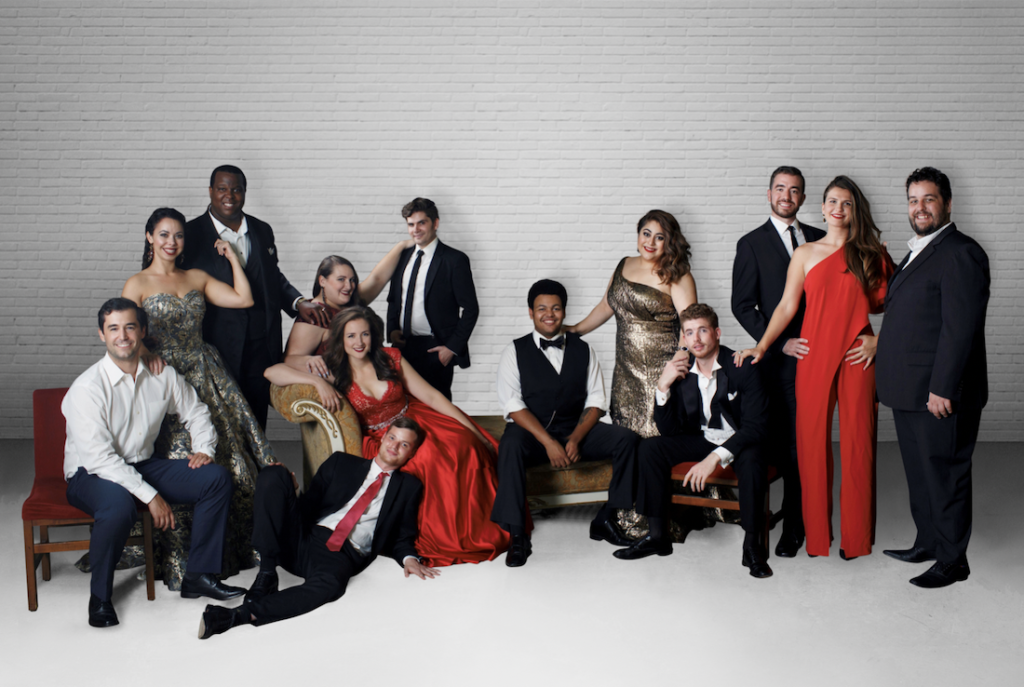
In addition to many performances on the Kennedy Center Millennium Stage, the Domingo-Cafritz Young Artists have performed at the White House, Teatro alla Scala in Milan, Opéra de Monte-Carlo, the Palau de les Arts Reina Sofia in Valencia, the United States Senate, the Supreme Court, the Music Center at Strathmore, the Smithsonian Institution, the Mexican Cultural Institute, with the Baltimore and Charleston Symphony Orchestras, and at numerous embassies. They have also appeared in concert with Maestro Domingo at the Reignwood Theatre in Beijing.
Each season, the Young Artists sing a fully staged performance with orchestra in the Kennedy Center Opera House as part of the WNO season. Past productions have included La Traviata, The Marriage of Figaro, Madama Butterfly, Così fan tutte, Don Giovanni, The Magic Flute, La bohème, Alcina, and Carmen, conducted by such luminaries as Maestro Domingo, Phillippe Auguin, Evan Rogister, Renato Palumbo, Jane Glover, and Michael Christie. In the 2018-2019 season, the Domingo-Cafritz Young Artists will perform a Concert of Comic Masterpieces on Friday, May 24, 2019, including the first act of Verdi’s Falstaff. Additionally, the Domingo-Cafritz Young Artists perform a concert at the Smithsonian’s Renwick Gallery on Sunday, February 10, 2019, and continue this season’s recital series at the Phillips Collection on Thursday, April 11, 2019.
Graduates of the Domingo-Cafritz Young Artist Program have gone on to successful careers including performances with the Metropolitan Opera, San Francisco Opera, LA Opera, New York City Opera, The Glimmerglass Festival, Santa Fe Opera, Seattle Opera, National Symphony Orchestra, Carnegie Hall, Bayreuth Festival, Glyndebourne Festival, Vienna State Opera, Berlin State Opera, Teatro Real in Madrid, Liceu Opera Barcelona, and Opéra de Monte-Carlo.
Artist Biographies
Host

Robert Ainsley
Program Director
Domingo Cafritz Young Artist Program
Active as an opera fanatic and factotum since 2001, Rob Ainsley has explored every facet of the art form across the country and lives to pass on his enthusiasm to others. He is an alumnus of the University of Cambridge, Mannes College of Music, and the Lindemann Young Artist Development Program at the Metropolitan Opera. Since then, he has been Co-founder and Principal Conductor of the Greenwich Music Festival, a guest Chorus Master at English National Opera, Associate Music Director at Portland Opera, Head of Music Staff and Chorus Master at the Minnesota Opera and Opera Theatre of Saint Louis, and a faculty member at Westminster Choir College’s CoOPERAtive Program. He is now the Director of the Washington National Opera’s Domingo-Cafritz Young Artist Program and the American Opera Initiative, seeking out and grooming the finest young American singers, composers, and librettists for international careers. His artists have performed on the world’s leading stages, won the Metropolitan Opera National Council auditions, been finalists in Operalia, and performed with him at the 2018 White House State Dinner for the President of France. He has conducted his own realizations of seventeenth-century operas, collaborated on a string of world premieres, raved about art songs in recital series of his own creation, and lectured on everything from Adams to Zemlinsky. Through it all, he has inspired hundreds of young artists and thousands of audience members to share his passion and prides himself on the friendships he has formed along the way.
